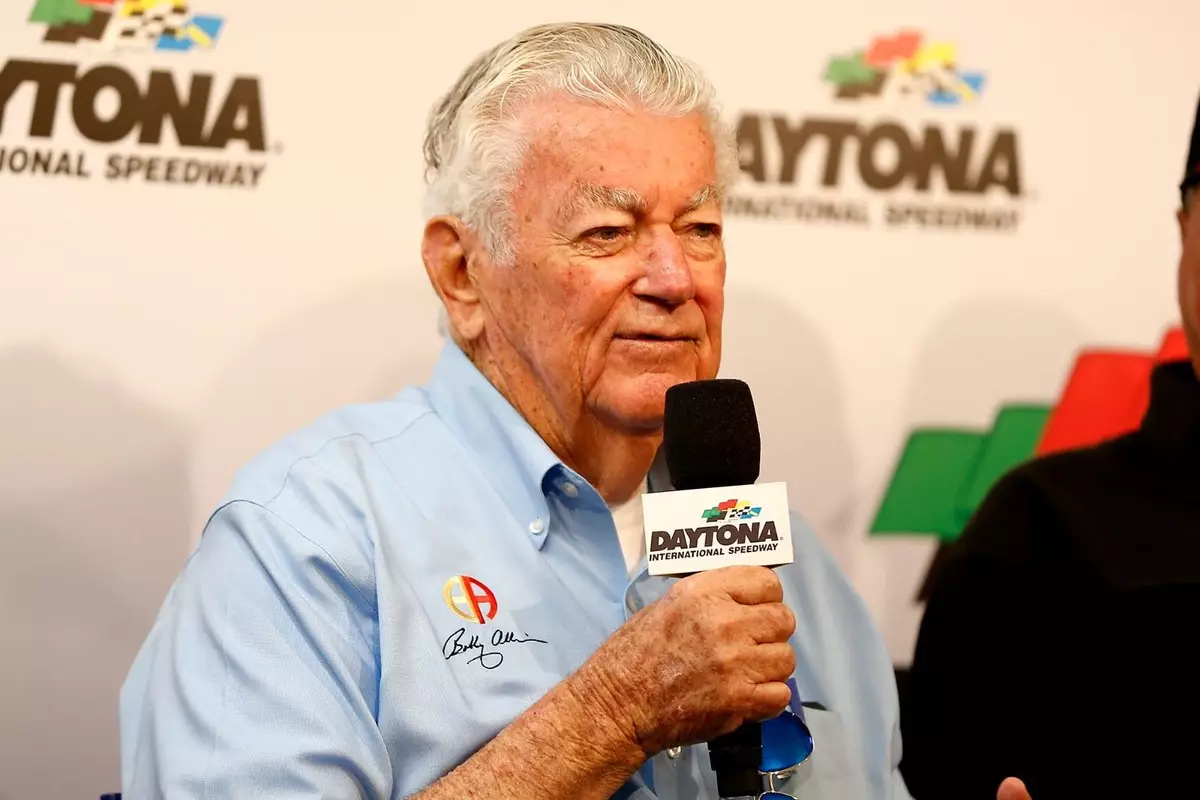Revisiting NASCAR’s Controversial Legacy: Bobby Allison’s 85th Win
There’s something truly magical about revisiting the golden moments of NASCAR history, especially when it involves legends like Bobby Allison. Recently, fans and officials alike took a journey back in time to acknowledge one of Allison’s most debated achievements: his 85th Cup Series win. This recognition came more than five decades after the race took place on August 6, 1971, at Bowman Gray Stadium. The historic venue has long been a cornerstone of NASCAR’s vibrant past, and this particular victory has sparked conversations that echo through the halls of motorsport lore.
As a dedicated NASCAR fan myself, I find stories like these fascinating because they blend the thrill of racing with intriguing tales of resilience and recognition. It’s not just about the cars zooming around the track but also about understanding the intricate layers of the sport’s history. Bobby Allison’s journey is a testament to perseverance, as he navigated both literal and metaphorical tracks to cement his legacy in NASCAR history. Such stories remind us why we fell in love with motorsports in the first place—they’re about passion, skill, and sometimes a touch of controversy that keeps things exciting.
Reflecting on Allison’s career brings back memories of watching races with family and friends, sharing in the excitement of each lap. It’s incredible how sports can connect people across generations, allowing us to appreciate those who paved the way for today’s drivers. Revisiting Allison’s contentious win not only celebrates his talent but also honors the rich tapestry of NASCAR’s past—a narrative woven with victories, challenges, and unforgettable moments that continue to inspire fans around the world.
Key Takeaways
- Bobby Allison’s 85th win was recently acknowledged over fifty years after the race.
- The race featured a mix of Cup Series cars and smaller Grand American vehicles.
- This victory highlights complexities within NASCAR’s historical regulations.
The Race That Sparked Debate
The 1971 race at Bowman Gray Stadium was nothing short of extraordinary. It combined Cup Series vehicles with smaller Grand American cars, creating a spectacle that was both thrilling and controversial. Bobby Allison’s decision to drive a Grand American Ford Mustang added an unexpected twist to this historical event. His performance was nothing short of spectacular as he led 138 out of 200 laps, finishing just ahead of Richard Petty—a name synonymous with NASCAR greatness. However, due to regulatory intricacies regarding vehicle classifications, this impressive feat was not officially recognized in NASCAR’s record books.

This situation underscores an often overlooked aspect of competitive sports: sometimes regulations overshadow true merit. While rules are necessary to maintain fairness and order, they can occasionally cloud outstanding performances deserving of acknowledgment. For decades, Bobby Allison held firm in his belief that this victory should be counted among his official wins. His steadfast dedication to preserving this part of his legacy speaks volumes about his passion for racing and desire for rightful recognition.
Navigating Complex Regulations
The inclusion of different car types in a single race presented unique challenges for NASCAR officials and competitors alike. The decision to allow Grand American vehicles alongside Cup Series cars led to confusion and debate over how victories should be classified. This complexity is part of what makes motorsports so fascinating—it’s not just about speed or skill but also understanding and navigating intricate rules. Bobby Allison’s insistence on claiming this victory highlights the sometimes convoluted nature of sports where technicalities can overshadow actual accomplishments on the track.

For many fans and historians, recognizing Allison’s win is about more than just numbers; it’s about honoring a driver who pushed boundaries and challenged norms. His unwavering determination to include this achievement in his legacy symbolizes the broader struggle athletes face when their remarkable feats are subject to scrutiny by ever-evolving standards. By acknowledging this victory now, NASCAR not only pays homage to one of its legends but also demonstrates a commitment to reflecting on its past while shaping its future.
A Legacy Solidified
Now at 86 years old, Bobby Allison stands alone as fourth on NASCAR’s all-time wins list—a position he previously shared with Darrell Waltrip since 1992. This recent acknowledgment adds an important chapter to NASCAR’s evolving narrative by celebrating both its storied history and those who shaped it. As Bowman Gray Stadium prepares to reenter the NASCAR Cup schedule in 2025, there’s an air of anticipation surrounding ‘The Clash,’ an event poised to rekindle connections between fans and their beloved sport.
The upcoming race at Bowman Gray serves as more than just another competition—it represents reconciliation between past controversies and present celebrations within motorsport culture. By bridging generational gaps through events like these, NASCAR aims not only at embracing tradition but also rectifying historical oversights such as those experienced by Allison throughout his career journey. Ultimately though each race carries its own story; every victory—officially recorded or otherwise—contributes uniquely towards enriching our collective understanding shared among enthusiasts worldwide today!
Final Thoughts
As we look forward to future events at Bowman Gray Stadium where legends were made (and sometimes unmade), let’s take time appreciating how far both drivers like Bobby Allison have come alongside us throughout years spent cheering them from sidelines! Whether you’re gearing up excitedly awaiting next big showdown or simply reminiscing quietly about days gone by—remembering what drives passion behind every lap remains key connecting thread uniting generation after generation across diverse backgrounds united under banner common love: fast cars competitive spirit embodied within heart-pounding world known fondly as “NASCAR.”
In essence then revisiting controversial legacies such as those left behind by figures iconic stature helps remind us all why sticking true oneself matters even amidst turbulent tides shifting landscapes found throughout sporting world today! So here’s raising glass toast toward continued success future endeavors embarked upon together hand-in-hand cherishing memories forged along way forevermore etched into annals cherished history shared among fellow devotees passionate pursuit excellence personified legendary figures akin revered champion none other than Mr.Bobby-Allison himself!
Bobby Allison NASCAR history racing legacy motorsports regulations


Leave a Reply